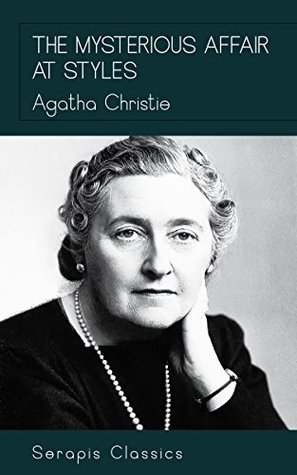More on this book
Community
Kindle Notes & Highlights
Read between
September 22 - September 28, 2021
I shall never forget my first sight of Mary Cavendish. Her tall, slender form, outlined against the bright light; the vivid sense of slumbering fire that seemed to find expression only in those wonderful tawny eyes of hers, remarkable eyes, different from any other woman's that I have ever known; the intense power of stillness she possessed, which nevertheless conveyed the impression of a wild untamed spirit in an exquisitely civilised body—all these things are burnt into my memory. I shall never forget them.
From the very first I took a firm and rooted dislike to him, and I flatter myself that my first judgments are usually fairly shrewd.
"Well, I've always had a secret hankering to be a detective!"
"The real thing—Scotland Yard? Or Sherlock Holmes?"
"Like a good detective story myself," remarked Miss Howard. "Lots of nonsense written, though. Criminal discovered in last chapter. Every one dumbfounded. Real crime—you'd know at once."
Cynthia Murdoch was a fresh-looking young creature, full of life and vigour. She tossed off her little V. A. D. cap, and I admired the great loose waves of her auburn hair, and the smallness and whiteness of the hand she held out to claim her tea. With dark eyes and eyelashes she would have been a beauty.
Poirot was an extraordinary looking little man. He was hardly more than five feet, four inches, but carried himself with great dignity. His head was exactly the shape of an egg, and he always perched it a little on one side. His moustache was very stiff and military. The neatness of his attire was almost incredible. I believe a speck of dust would have caused him more pain than a bullet wound.
Do not think that you are betraying your mistress's secrets. Your mistress lies dead, and it is necessary that we should know all—if we are to avenge her. Nothing can bring her back to life, but we do hope, if there has been foul play, to bring the murderer to justice."
"You are sure it was Mr. Inglethorp's voice you heard?" "Oh, yes, sir, whose else's could it be?"
I marvelled at Poirot's calm. His self-control was astonishing.
"You gave too much rein to your imagination. Imagination is a good servant, and a bad master. The simplest explanation is always the most likely."
"What have I always told you? Everything must be taken into account. If the fact will not fit the theory—let the theory go."
"Yes, yes, too conclusive," continued Poirot, almost to himself. "Real evidence is usually vague and unsatisfactory. It has to be examined—sifted. But here the whole thing is cut and dried. No, my friend, this evidence has been very cleverly manufactured—so cleverly that it has defeated its own ends."
We know now that there is one person who did not buy the poison. We have cleared away the manufactured clues. Now for the real ones.
"Still you are right in one thing. It is always wise to suspect everybody until you can prove logically, and to your own satisfaction, that they are innocent.
Now there is no murder without a motive."
"The Mysterious Affair at Styles" was the topic of the moment.
"Instinct is a marvellous thing," mused Poirot. "It can neither be explained nor ignored."
"Every murderer is probably somebody's old friend," observed Poirot philosophically. "You cannot mix up sentiment and reason."
"Oh, my friend, have I not said to you all along that I have no proofs. It is one thing to know that a man is guilty, it is quite another matter to prove him so. And, in this case, there is terribly little evidence. That is the whole trouble. I, Hercule Poirot, know, but I lack the last link in my chain.
The happiness of one man and one woman is the greatest thing in all the world."


